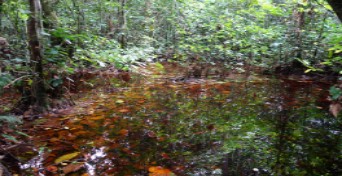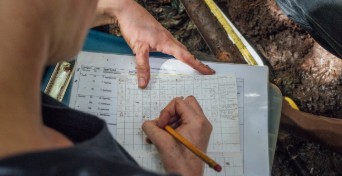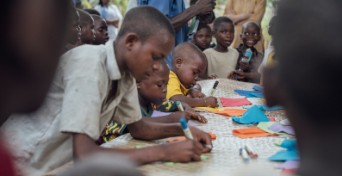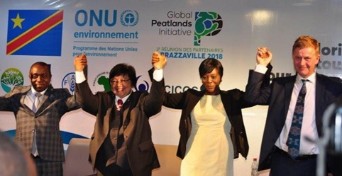About The Project
CongoPeat is a 5-year project led by Professor Simon Lewis of the University of Leeds, funded by the UK’s Natural Environment Research Council (NERC). It builds on the recently published first-ever map of a vast peatland in the central Congo Basin (Dargie et al., 2017). Covering 145,500 square kilometres – an area larger than England – it is now recognised as the world’s most extensive tropical peatland.
Given the carbon stored in the peatlands, protecting them has become a global priority. Peat is a type of wetland soil made of semi-decomposed plant matter and so is rich in carbon. We estimate that about 30bn tonnes of carbon is stored in the peatland we found – an amount equivalent to three years of global fossil-fuel emissions.
Policy-making in the region is fluid and fast moving. Following our discovery, the Republic of Congo and the Democratic Republic of the Congo (DRC) signed the Brazzaville Declaration – an historic agreement to protect and preserve the rich ecosystem.
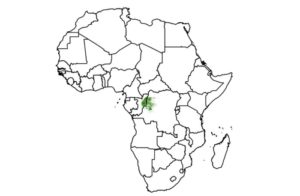
Yet, while mostly intact and increasingly protected on paper, the peatlands are in reality threatened by road building, logging, drainage for industrial palm oil plantations, and oil exploration. Additionally, rising temperatures could tip the balance of the peatland from absorbing carbon from the atmosphere to releasing it.
In response, the CongoPeat programme aims to gain a comprehensive understanding of this carbon-rich ecosystem by answering key questions about its past, present and future. It brings together leading experts from six UK universities and five Congolese organisations to study this newly discovered ecosystem, alongside science-policy communication specialists to explain our results.
We aim to provide the very best scientific information to allow policy-makers and civil society to make wise decisions about this globally significant region of Earth.
Contact us
- Tel.: +44 (0)113 343 3341
- Email: admin@congopeat.net
- Twitter: @CongoPeat
